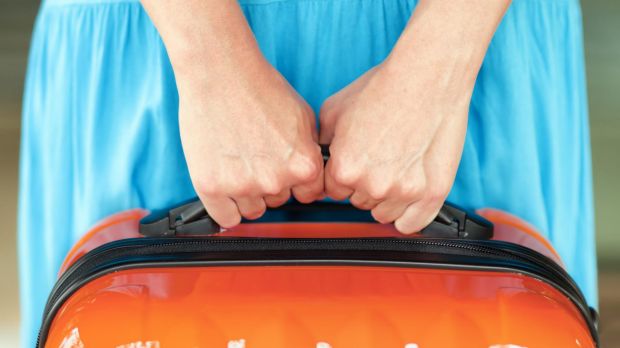From the moment their cuteness wears off and is replaced by smelly socks, empty fridges and rusty old cars parked on the front lawn, we all start dreaming of the day our beloved offspring will venture out into the world on their own. But with children now staying at home well into their 20’s or even 30’s, what can we do to help give them a gentle nudge (or in some cases an almighty push!) towards independence?
Whether they stay at home or leave the nest, there can be financial repercussions for Mums and Dads…
Whether they stay at home or leave the nest, there can be financial repercussions for Mums and Dads…
How to ease your children out of the nest in today’s tough property climate
Vanessa DeGroot, Domain
October 1, 2017
October 1, 2017
For many cultures, having children stay at home is the norm. It’s also beneficial for some parents as they provide company, especially for single mums and dads, as well as (hopefully) helping, both with household chores and financially. It can even help pay off your home if you’re receiving board.
But many parents do want their children to leave home, despite fears they can’t, or won’t. A recent Galaxy survey done for Stockspot found 74 per cent of parents with children aged under 17 feared they would never leave home and 85 per cent were worried their children wouldn’t be able to afford their own home.
The Bank of Mum and Dad has certainly had a mighty good workout in recent years, with adult children are staying at home for longer.
Many parents want their children to leave home, despite fears they can't, or won't.
The most recent figures from the Australian Bureau of Statistics show in 2012-2013, 31 per cent of people aged 18 to 34 had never left home, which had increased from 27 per cent in 2006-07, with the major reason being financial. Chances are, with deteriorating housing affordability, these figures haven’t changed much, with young people staying at home longer to help save a deposit for their own home.
But while house prices are an impediment, interestingly the Galaxy survey found 62 per cent of parents thought spending habits of their offspring were an issue.
Whatever you do to help, consider the financial repercussions for you. Chances are it will affect your future and hinder your retirement.
Research from Canstar has also shockingly found that adult children were borrowing from their parents well into their 30s, not just to buy a home but to pay everyday bills. It found half of over-18s were borrowing money from their parents, with one in five 18 to 37-year-olds borrowing weekly or monthly.
Herein lies one of the answers to getting your offspring to leave the nest – teach them about finances, including the value of money, banking, budgeting and saving, ideally from a very young age.
The Bank of Mum and Dad has certainly had a mighty good workout in recent years, with adult children are staying at home for longer.
Many parents want their children to leave home, despite fears they can't, or won't.
The most recent figures from the Australian Bureau of Statistics show in 2012-2013, 31 per cent of people aged 18 to 34 had never left home, which had increased from 27 per cent in 2006-07, with the major reason being financial. Chances are, with deteriorating housing affordability, these figures haven’t changed much, with young people staying at home longer to help save a deposit for their own home.
But while house prices are an impediment, interestingly the Galaxy survey found 62 per cent of parents thought spending habits of their offspring were an issue.
Whatever you do to help, consider the financial repercussions for you. Chances are it will affect your future and hinder your retirement.
Research from Canstar has also shockingly found that adult children were borrowing from their parents well into their 30s, not just to buy a home but to pay everyday bills. It found half of over-18s were borrowing money from their parents, with one in five 18 to 37-year-olds borrowing weekly or monthly.
Herein lies one of the answers to getting your offspring to leave the nest – teach them about finances, including the value of money, banking, budgeting and saving, ideally from a very young age.
Setting up a bank account for your children at an early age will help them develop an understanding of budgeting.
You should set up a bank account for them early on, which should be the starting point for saving and could provide the beginnings of a house deposit. If they’re already grown and they haven’t yet been educated, start teaching them how to be financially independent now. It’s never too late.
While housing affordability is an issue, perhaps these adult children are just getting it too good, and there’s no great incentive to leave home. Have them pay you board and contribute to everyday household chores, which will prepare them to fly the coop by becoming more responsible.
But to get them to actually bite the bullet and move out, you can try a few things.
One tactic to get the ball rolling is to set a moving day.
The first is to set a moving day deadline. Life skills coach Michele Jones recently advised parents to kick their children out by the age of 20.
You should set up a bank account for them early on, which should be the starting point for saving and could provide the beginnings of a house deposit. If they’re already grown and they haven’t yet been educated, start teaching them how to be financially independent now. It’s never too late.
While housing affordability is an issue, perhaps these adult children are just getting it too good, and there’s no great incentive to leave home. Have them pay you board and contribute to everyday household chores, which will prepare them to fly the coop by becoming more responsible.
But to get them to actually bite the bullet and move out, you can try a few things.
One tactic to get the ball rolling is to set a moving day.
The first is to set a moving day deadline. Life skills coach Michele Jones recently advised parents to kick their children out by the age of 20.
Perhaps 20 is a little harsh, but the idea that they need to be forced to stand on their own two feet absolutely makes sense. There’s no better way to learn how to be responsible and pay your own way, and it will boost their self-esteem.
If you want them to move into a home they own rather than renting, you can wait until they’ve saved enough of a deposit, but if that’s too far into the future you can help them by either giving or lending them money. Maybe you can even sock away the board they’ve been paying you and give it back in a lump sum so they can use it as a deposit.
Another option is also to offer a family guarantee, which is an increasingly common way for parents to help their adult children get into home ownership. It involves allowing them to use the equity in your home to buy their own home.
Whatever you do to help, consider the financial repercussions for you. Chances are it will affect your future and hinder your retirement. But then again, you can always ask the kids to repay the favour in your later years!
If you want them to move into a home they own rather than renting, you can wait until they’ve saved enough of a deposit, but if that’s too far into the future you can help them by either giving or lending them money. Maybe you can even sock away the board they’ve been paying you and give it back in a lump sum so they can use it as a deposit.
Another option is also to offer a family guarantee, which is an increasingly common way for parents to help their adult children get into home ownership. It involves allowing them to use the equity in your home to buy their own home.
Whatever you do to help, consider the financial repercussions for you. Chances are it will affect your future and hinder your retirement. But then again, you can always ask the kids to repay the favour in your later years!
Searching for a way to get your home back?
We can help you to find the perfect property, whether it’s for you or the kids!
Call Sonia on 0403 309 136 today!
We can help you to find the perfect property, whether it’s for you or the kids!
Call Sonia on 0403 309 136 today!



